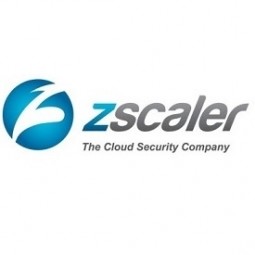Technology Category
- Analytics & Modeling - Real Time Analytics
- Cybersecurity & Privacy - Application Security
Applicable Industries
- Automotive
- National Security & Defense
Applicable Functions
- Maintenance
- Quality Assurance
Use Cases
- Fleet Management
- Tamper Detection
Services
- System Integration
- Testing & Certification
About The Customer
ALD Automotive is a service company that provides vehicle leasing and fleet management to corporations. Founded in 1946, it is part of the Société Générale group, one of Europe’s largest financial services organizations, which employs 163,000 persons. ALD Automotive operates across 39 countries, and its IT infrastructure is overseen by Chief Information Officer, Laurent Hallermeier. The company has experienced rapid growth, leading to an increase in IT infrastructure complexity. It uses a mix of local and central Internet connectivity, and has a proliferation of Web applications used for business.
The Challenge
ALD Automotive, a service company providing vehicle leasing and fleet management, faced a significant challenge due to its rapid growth across 39 countries. This expansion led to an exponential increase in IT infrastructure complexity. The company had established a mix of local and central Internet connectivity, which required the provisioning of multiple disparate security point products at each site with different policies. This fragmentation made it difficult to obtain an aggregate view of the organization's security state. The proliferation of Web applications further complicated management. Broad policies to deny access were no longer sufficient as Web applications of all types were being used for business, requiring more granular policies that varied across countries. With the evolution of the Web, content became more dynamic and threats more sophisticated, necessitating SSL inspection. ALD Automotive was in need of a comprehensive security solution.
The Solution
ALD Automotive opted for a web security SaaS (Software as a Service) solution to reduce the complexity of managing multiple point products in each country. The company could simply forward traffic from all countries to the cloud without making major changes to the infrastructure. Moreover, a single policy could be administered across all countries. Augmenting functionality to cloud-based solutions was as easy as enabling additional services, eliminating the need to install any additional products within their infrastructure. This made costs low and predictable. ALD Automotive implemented the Zscaler service as a proof of concept with a handful of users at a handful of geographically dispersed sites. The users experienced ultra-low latency due to Zscaler's distributed multi-tenant architecture that routes traffic to the closest geo-localized gateway. Zscaler also leverages a single unified policy across all services and sites, which alleviated a large IT burden.
Operational Impact
Quantitative Benefit

Case Study missing?
Start adding your own!
Register with your work email and create a new case study profile for your business.
Related Case Studies.

Case Study
Integral Plant Maintenance
Mercedes-Benz and his partner GAZ chose Siemens to be its maintenance partner at a new engine plant in Yaroslavl, Russia. The new plant offers a capacity to manufacture diesel engines for the Russian market, for locally produced Sprinter Classic. In addition to engines for the local market, the Yaroslavl plant will also produce spare parts. Mercedes-Benz Russia and his partner needed a service partner in order to ensure the operation of these lines in a maintenance partnership arrangement. The challenges included coordinating the entire maintenance management operation, in particular inspections, corrective and predictive maintenance activities, and the optimizing spare parts management. Siemens developed a customized maintenance solution that includes all electronic and mechanical maintenance activities (Integral Plant Maintenance).

Case Study
Monitoring of Pressure Pumps in Automotive Industry
A large German/American producer of auto parts uses high-pressure pumps to deburr machined parts as a part of its production and quality check process. They decided to monitor these pumps to make sure they work properly and that they can see any indications leading to a potential failure before it affects their process.







